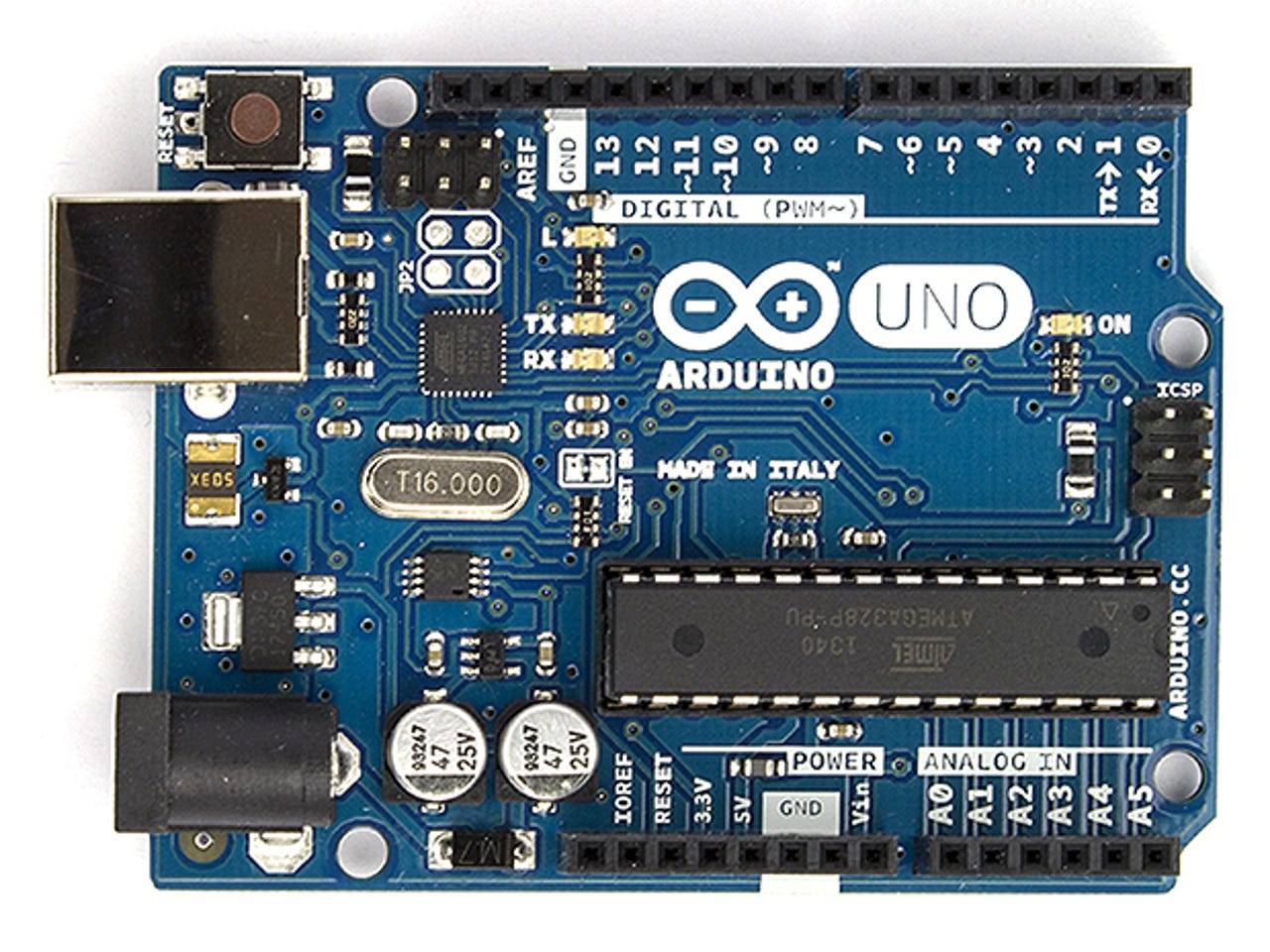What's in a name: The battle for the soul of Arduino


That was the question many Italians were asking recently when reports appeared in local media that Massimo Banzi, co-founder and high-profile figurehead for the popular open hardware project, was stepping down from managing the initiative. The lead was to be taken by Federico Musto, CEO of Dog Hunter, an Internet of Things company that had previously contributed to Yun, a family of wi-fi products that combine Arduino and Linux.
The story took another turn as Banzi rapidly denied the claims about his supposedly reduced role. But the matter nonetheless cast a cloud over the initiative, appearing to reveal a rift between the co-founders over conflicting views on business strategies and legal battles over the project's trademark. The fact that there are now two different companies with the same name operating two websites with the same logos doesn't help to clarify the situation either.
How many Arduinos?
The news that set Italy's maker community talking came at the start of February, when several Italian media outlets (among them the financial daily Il Sole 24 Ore) reported that Musto had been appointed CEO of Arduino SRL (those last three letters in Italian designate a private limited company). The incoming chief executive announced a "new strategy" to make the project "more international" and envisioned a division of duties of sorts between himself, who would take charge of the business side of the venture, and Banzi, who would focus on open source evangelism.
It didn't take long for Banzi, who's been the face of the open hardware project all these years, to issue a statement clarifying that he was not stepping back from anything as he wasn't involved in the organization led by Musto in the first place, as some media reports seemed to imply. The announcement, he said, involved just the management and the strategies of Arduino SRL and other companies controlled by Musto, not the project as a whole.
Banzi, for his part, holds a share in Arduino SA (the last two letters signify a public limited company, distinguishing it from Musto's Arduino SRL), based in Switzerland, and in other companies with the same name operating in other parts of the world.
The initial shock over the changes quickly turned into confusion: how many Arduinos are there and, more importantly, which one can claim to be the legitimate head of the project? The ultimate answer to this last question will probably take some time to become clear since, it has emerged, there are two ongoing lawsuits about the use of the Arduino trademark, one in the US and one, according toIl Sole 24 Ore, in Italy.
Naming the names
Among all the confusion one thing seems sure: a brilliant story of Italian ingenuity is getting lost in a debate about the future of a project that helped inspire the rise of the global makers' movement. Arduino SRL, which took the name just a few months ago and was formerly known as Smart Projects, was in fact founded by Gianluca Martino, who is one of the five people that in 2005 gave birth to the open-hardware project in the city of Ivrea (the others, besides Banzi, are David Cuartielles, Tom Igoe, and David Mellis).
Smart Projects became the first manufacturer of Arduino boards and today still produces the largest share of them. None of the other founders holds a position in the company, but they do have shares in the several organizations (including the aforementioned Arduino SA in Switzerland and Arduino LLC in the US) registered over the years to manage Arduino's trademark in different parts of the world; to coordinate the evolution of the project; and help steer the development of the relevant software and hardware.
The inventors appear to have conflicting visions about the role of hardware manufacturing in Arduino's future. Musto and Martino appear to think the production side of the project should be central and that it should be kept as much as possible in Italy. Banzi confirmed to ZDNet that he sees hardware manufacture as just one part of Arduino's mission, and not the most important one. Consequently Arduino SA started licensing the production of the boards to different companies in different parts of the world, envisioning a scenario where every local market will have its local certified manufacturers. The move is also seen as a way to fight the already illegal pervasive distribution of boards with Arduino's counterfeited trademark in some markets like China.
With such a vision in mind Banzi and the other three co-founders see Arduino SRL/SmartProjects as just one of the many licensed manufacturers of the project's hardware which for many years enjoyed a privileged position.
However, Musto and Martino believe theirs is more than just another manufacturer, and has the right to use the trademark and the logo, as the company's name and new website, www.arduino.org, shows.
The definitive answer on who will end up using the trademark is now a matter for the courts to decide, which might take a while. In the meantime all the Italian makers' community can do is to hold its breath and hope that the founders' differing visions won't harm the future of their great idea.
Read more on Arduino